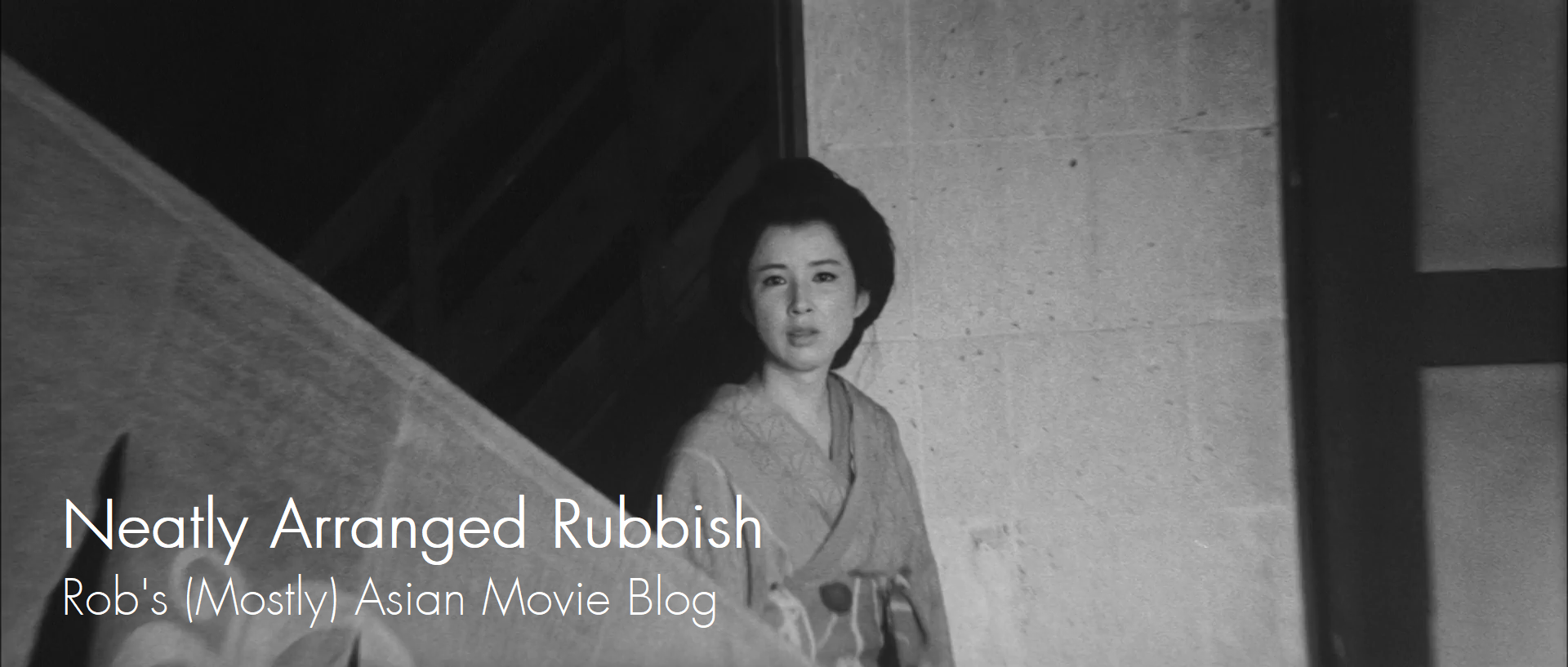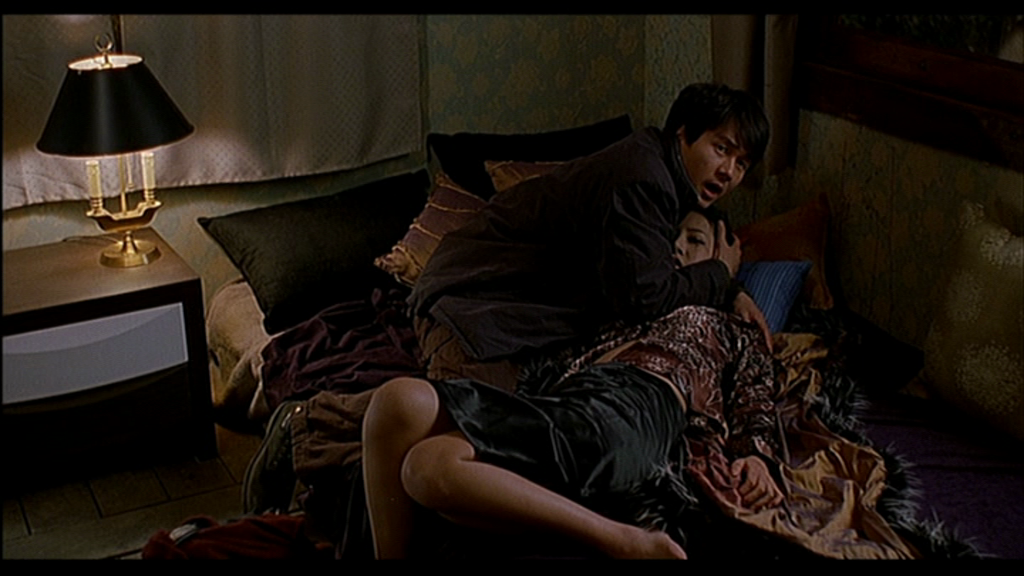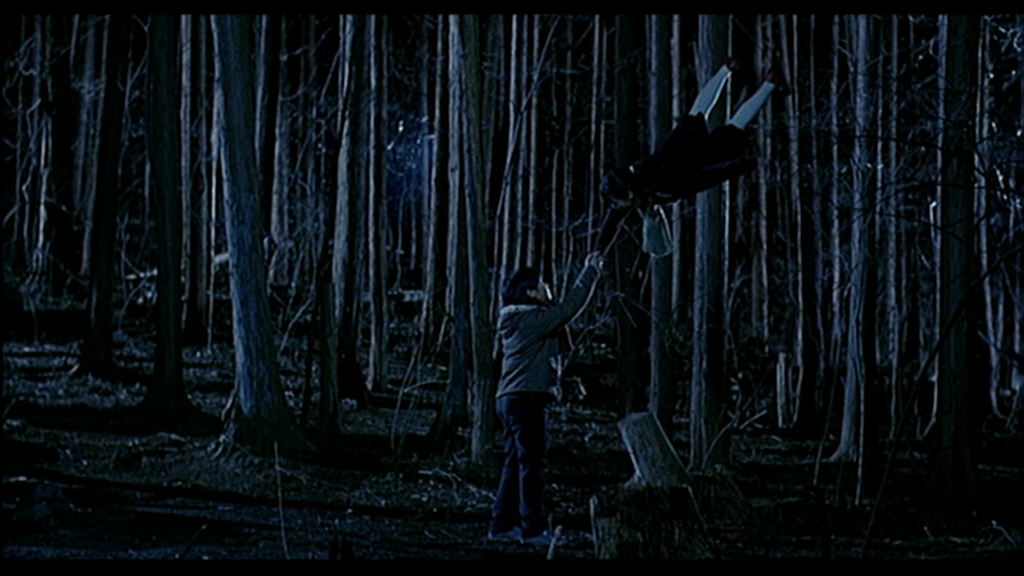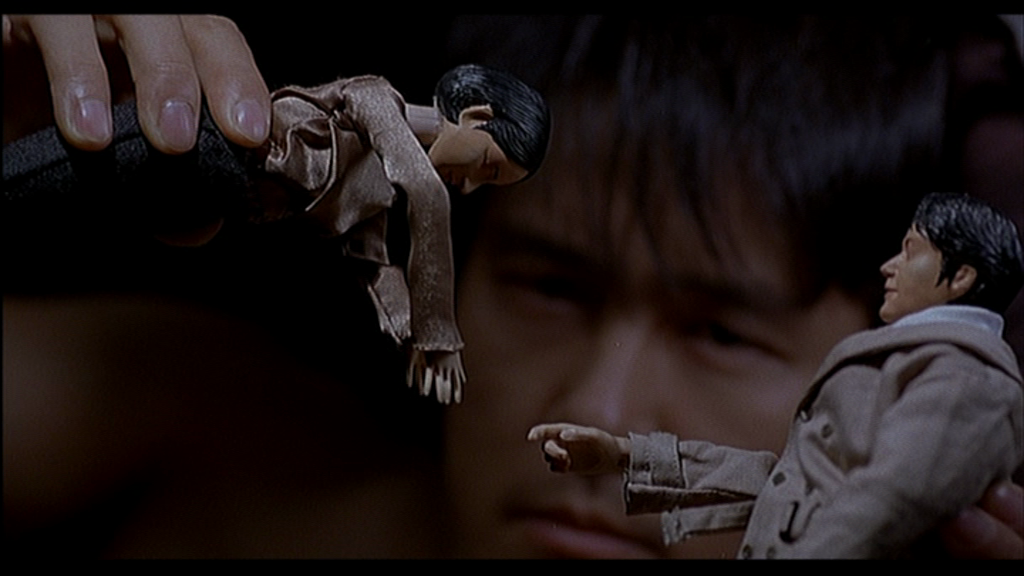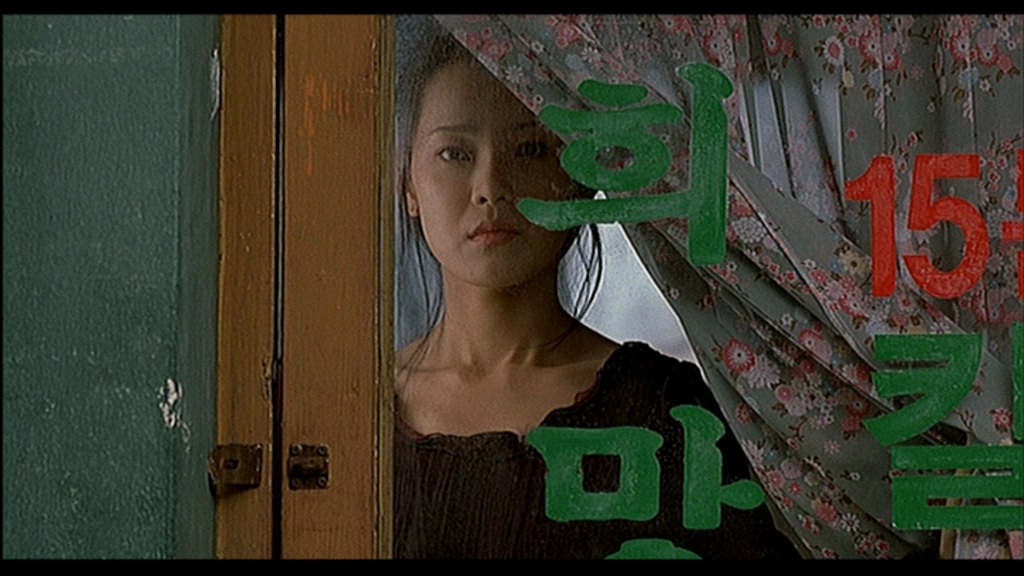Last Updated on August 16, 2021 by rob
At a cabin in the woods, Kang (Gam Woo-sung) is witness to the blood-soaked corpses of two murder victims, one of which is his girlfriend Su-yeong (Kang Gyeong-heon). While chasing the killer Kang is badly injured and nearly killed when he stumbles into the path of a passing car. Waking up in hospital a fortnight later Kang’s first action is to call for the police. But as an official investigation gets underway troubling gaps in Kang’s recollection of events throw into question the identity of the killer, a witness who could testify to Kang’s innocence can’t be found and even the nature of what exactly happened on that night seems increasingly uncertain.
Had this remarkable film been played as a straight down the line amnesiac murder mystery that would have been fine enough but writer-director Song Il-Gon is only really interested in using the thriller aspects as a hook on which to hang a mesmerising portrait of a grief-stricken man recovering from some shattering trauma in which remembrance is the key (it’s pretty obvious from the start who the shadowy figure pursuing our hero is but in any case that isn’t really the point). Instead we’re presented with a succession of flashbacks filling in Kang’s life, the most suggestive of which has him on a work assignment to the sticks (he’s a tv news editor/cameraman) sent to interview a pretty photo store owner, Min Su-Jin (Suh Jung) about the legend of a nearby forest. According to Min the spiders of the titular forest are really human spirits waiting for someone to remember them before they can be freed.
At this point the story audaciously reworks the thriller elements of its grisly double murder into myth as we learn that long ago two schoolchildren – a boy and a girl – lived happily in Spider Forest. But the girl died in circumstances (presented with sudden and terrifying abruptness) which ominously echo the present day cabin murder. In this way the film not only blurs the line between fantasy and reality it raises further possibilities; what if the amnesiac Kang was the little boy in that story? If he was – and since the police have yet to discover any evidence of his murder claim – might we be witnessing a severely traumatised man whose long repressed childhood memories of a gruesome double murder are bubbling up to the surface of his mind and manifesting themselves as delusions?
As the story unfolds a series of oblique connections are established. We learn that Kang’s first wife (Suh Jung again, playing dual roles), was killed in an air crash shortly after he saw her off at an airport. In the tale of the two children related by Min the last the boy sees of his girl is when she literally floats out of his arms into the sky. Su-yeong, the female TV producer Kang begins a relationship with after his wife’s death, is murdered for what appears to be the same reason that motivated the slaughter witnessed by the two children. We’re told that afterwards the boy suffered an illness that caused him to forget everything that happened in the forest. But a teacher at the boy’s school later denies this, telling Kang there was no double murder and that the little girl simply fell ill and died.
As these contradictory details emerge not only the motivation of the mysterious killer but the very fact of the double murder that kicks off the film begins to waver. About all we can be sure of is that Kang is hurting because of the traumatic loss of someone he loved. But who that someone is remains tantalisingly ambiguous. The director’s casting of pretty Suh Jung as two of the women who loom large in Kang’s life is suggestive but everything we see here is given equal dramatic weight. Granted, this style of narrative is as likely to infuriate as delight but handsome Gam Woo-Sung has such a gentle, receptive quality as the injured protagonist searching for answers that you feel intense empathy for him. That the film works as well as it does is primarily because Kang’s plight so involves us emotionally and let’s face it – that empathy is exactly what you need to carry you through a film as narratively ambiguous as this.
In this respect I particularly liked the intimate moment between Kang and wife Suh Jung on the eve of her doomed flight. The pair make desultory small talk over a glass of wine, she does a silly little mime involving an apple (something later echoed during one of the film’s more disturbing scenes) and the way Kang watches makes it abundantly clear how much he adores this woman. He’s a good physical actor too; watching him drag himself back and forth to the scene of the crime like some refugee from The Walking Dead has you flinching at his every move. Suh Jung is also equally effective as the film’s other major character, photo shop owner Min Su-Jin. She occupies a fascinating position in what looks increasingly like a psychodrama playing out in one man’s mind.
My own theory – for what it’s worth – is that she’s actually Kang’s dream of what the schoolgirl he used to know would have become had he not fallen ill and forgotten her. That right at the end of the film Min asks him not to forget her seems to tie in with the legend of Spider Forest and the implication that the forest itself is really a metaphor for Kang’s subconscious. Indeed, the film is full of the symbols of dreams. Reflections, tunnels, keys, doors, all figure prominently. Il-Gon constructs a web of allusions in which past and present and fantasy and reality all overlap, with the true meaning hovering tantalisingly just out of reach. His direction is clever in the way it echoes events in different time periods through repetition of a particular camera angle or movement within the frame.
The sureness of tone means the film juggles thriller and investigative elements with romance, character drama and even a few outright fantasy moments with equal aplomb. I especially liked the touch of black humour in the midst of a brutal murder scene as the killer’s rampage is temporarily brought to a halt because the sickle he’s using has gotten jammed in the skull of one of his victims and no amount of pushing and pulling seems able to free it. Ever since I saw Spider Forest in 2005 it’s been one of those films that’s stayed with me. A rewatch 12 years on proved every bit as compelling as it did the first time. I still can’t figure it all out even though its writer/director claims to have written the original script as a straightforward linear thriller before deciding to rearrange the sequence of events into something determinedly non-linear, but as enigmas go, this one’s a real pleasure to spend time with.
